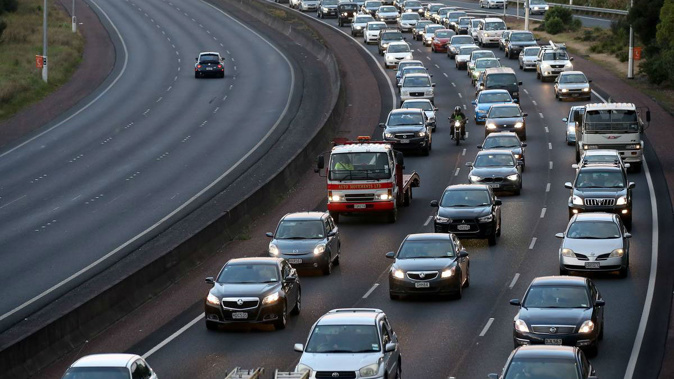
Auckland's traffic congestion is costing the local economy up to twice as much as previously estimated, according to a new research by the NZ Institute of Economic Research.
The report - Benefits from Auckland road decongestion - found benefits of decongestion to the current network capacity in Auckland at $0.9 billion to $1.3 billion (1 per cent to 1.4 per cent of Auckland's GDP).
But if the average speed across the Auckland network was close or equal to the speed limit, which is also known as free-flow, then the estimated benefits of decongestion during weekdays was between $1.4 and $1.9 billion (between 1.5 per cent and 2 per cent of Auckland's GDP).
The range of estimates reflects different assumptions about how an easier commute
would affect Auckland's labour supply.
NZIER senior economist Christian Leung said the report emphasised benefits of decongestion to the current network capacity if the road transport network was operating at its capacity Monday to Friday as it is designed to.
It didn't factor in the costs of weekend congestion because they did not have comparable rush hours.
So the estimate of up to $1.3 billion represented a realistic figure which could be achieved through investment in policy initiatives such as better traffic management technologies and smart pricing, she said.
However NZIER's work had built on previous studies - such as Wallis and Lupton's 2013 study - which used free-flowing traffic as a benchmark.
"The costs of congestion in Auckland have been widely quoted as around $1 billion per
annum," Leung said.
On a like for like basis "this suggests the cost of congestion, relative to a network at free-flow, is up to double that."
The NZIER study also extended the scope by modelling the downstream impacts of congestion on Auckland's supply chains.
"The benefits of decongestion go well beyond their direct time-savings impact on freight
and commuters. They also accrue to all businesses that use transport and employ workers
who commute, and to households who waste their scarce time in traffic jams," the study notes.
"Our estimate of the benefits of decongestion includes these flow-on impacts across the
economy, plus social benefits such as reduced carbon emissions."
It was fair to say they could be even higher if weekend traffic was factored in.
The research, was commissioned by the Employers and Manufacturers Association (EMA) and Infrastructure New Zealand, Auckland Airport, Ports of Auckland and the National
Road Carriers Association.
EMA chief executive Kim Campbell said the report should be wake-up call to government and council to get on with and speed up investment in transport solutions.
"Everyone seems to understand that we need to invest infrastructure, but there's always this thing about: where's the money going to come from," he said.
Things got "bogged down in circular arguments" about whether it should be paid for with congestion charges or by council or government.
"But when you look at the numbers you see that every minute day or week that you delay it is money that you could have used to put towards the development.
So if you looked at the long time frames on the Auckland Transport Alignment Projects (ATAP) - like the second harbour crossing - then waiting just didn't make any sense.

Take your Radio, Podcasts and Music with you









